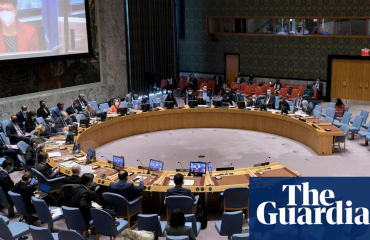Opinion: Canada's current travel restrictions don't make sense – The Globe and Mail
Countries such as Israel and Japan enacted severe travel restrictions amid rising reports of the Omicron variant. Canada has done the same.Nathan Denette/The Canadian Press
Zain Chagla is an infectious diseases physician and an associate professor at McMaster University.
Since the start of the pandemic, governments have deployed travel restrictions and stringent border controls to try to limit the spread of the COVID-19 virus. But while these efforts may have slowed transmission, COVID-19 managed to find its way into countries around the world, showing how travel bans and testing struggle to mitigate outbreaks. And though vaccines led to the relaxing of certain travel restrictions, the arrival of the Omicron variant led to new travel bans, new quarantines, new testing requirements – and new opportunities to make the same mistakes.
While countries such as Israel and Japan enacted severe travel restrictions amid rising reports of the Omicron variant, even they have faced delayed but exponential growth in Omicron cases. And here in Canada, Omicron was reportedly detected in wastewater before South Africa notified global health authorities of its emergence on Nov. 25, even though our systems did not pick this up. Potential transmission through asymptomatic travellers becomes a negligible risk if the disease is already widely circulating in the community.
The lessons here must be learned for the future. A permanent ban on travel is impossible, and diverse countries such as Canada have families with diverse travel needs. Omicron has taught us that our global interconnectedness means the virus is a part of our future and that we must think globally for solutions. And it has taught us that the current rules for travel do not make sense.
The first issue is a lack of access to local testing. Currently, in many provinces, there is no access to PCR testing for those experiencing COVID-19 symptoms. This presents a challenge, especially since PCR tests may continue to deliver positive results for weeks to months after a diagnosis, even if the person is non-infectious. That means a person required to do a test while travelling may test positive because of a prior COVID-19 infection, potentially leading to travel delays, financial penalties, and the need to find a secondary quarantine location, all with no meaningful societal benefit. Indeed, in addition to these disruptions to the travel industry, I’ve seen firsthand how the challenges of universal testing after the Omicron surge have made it harder to provide clinical care and manage hospital beds. This is impossible to manage in the travel industry.
The current test-mandate system around travel is also costly and inconvenient. The current border testing strategy may cost the federal government more than $600-million; in addition, individuals are required to pay for tests abroad to return to Canada and face thousands of dollars in potential additional expenses. Turnaround times for PCR tests can take more than a week, and those long wait times can lead to prolonged quarantine for asymptomatic individuals tested at random at Canadian airports. This purgatory could also hold back health care workers returning from travel, at a time when they are desperately needed.
Quarantine requirements and restrictions for individuals are inconsistent at all levels; the federal requirement to keep children out of daycare or school for 14 days after travel, for instance, seems to collide with the provincial rule that if they develop COVID-19 or are a close contact of someone who has the virus in Ontario, they only need to isolate for five days.
This does not mean that all travel is safe. But the risk of contracting COVID-19 in Canada and getting it on international soil are starting to even out, and public messaging should convey this clearly to individuals. It should make clear that Canadians should consider pre-travel vaccination to lower the risk of severe COVID-19, as with other travel vaccines that are routinely recommended. If you are at risk of hospitalization despite the vaccine, you should reconsider your travel plans or abide by the same precautions you would here. If health care capacity is stretched, or if you become hospitalized with COVID-19 abroad, you should understand that coming back to Canada may not be an option. However, using testing as a “stick” to discourage travel is not appropriate.
Finally, the need to monitor for variants can be satisfied without border testing. Individuals who develop symptoms after travel can be tested in local communities and subsequently sequenced, thereby creating global traveller surveillance networks. Anonymous testing at the airport for travellers who volunteer could be provided, without the need for quarantine. Finally, improvements to local surveillance for variants, such as increases to sequencing capacity or upgrades to wastewater analytics, are more cost-effective and less intrusive than current standards.
However, in all of this, travel does need to be accommodated as we return to normal. And right now, our processes introduce burden without any meaningful benefit.
Keep your Opinions sharp and informed. Get the Opinion newsletter. Sign up today.
Follow us on Twitter: @globedebateOpens in a new window
Report an error
Editorial code of conduct
Build your personal news feed




